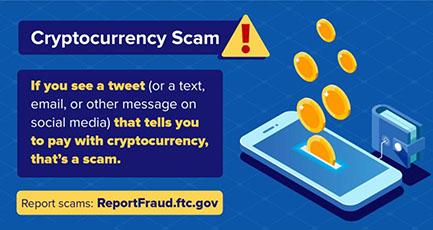The world of cryptocurrency, with its promise of decentralized finance and potential for high returns, has captured the attention of seasoned investors and curious newcomers alike. However, this innovative technology comes with its own set of risks. Before diving headfirst into the crypto market, it’s essential to understand the potential downsides and how to protect yourself.
Understanding the Risks of Paying with Cryptocurrency
While cryptocurrency offers a new way to make payments, it’s crucial to understand how it differs from traditional methods and the risks involved:
1. Limited Legal Protections: Unlike credit and debit card transactions, which are backed by robust consumer protection laws, cryptocurrency payments lack a similar safety net. If a purchase goes awry, recourse options are limited. Disputes can be difficult to resolve, and recovering lost funds is often impossible.
2. Irreversible Transactions: Cryptocurrency transactions are designed to be irreversible. Once a payment is sent, it’s typically final. This finality makes it crucial to exercise caution when choosing sellers. Thorough research and verification of a seller’s reputation are essential before making a payment.
3. Transparency and Privacy Concerns: While often touted as anonymous, cryptocurrency transactions offer a nuanced form of privacy. Transactions are recorded on public ledgers called blockchains, which track transaction amounts and wallet addresses. While not directly linked to your identity, this information, combined with other data points, can potentially be used to trace transactions back to individuals.
Navigating the Uncertainties of Cryptocurrency Investments
Cryptocurrency’s decentralized nature, while appealing to some, introduces a unique set of risks for investors:
1. Volatility and Market Manipulation: Cryptocurrency markets are known for their extreme price swings. The value of a cryptocurrency can fluctuate dramatically in short periods, leading to substantial gains or losses. This volatility makes it a high-risk investment. Additionally, the market is susceptible to manipulation due to its relatively new and less regulated nature.
2. Lack of Government Backing: Unlike traditional currencies backed by governments or central banks, cryptocurrencies derive their value from market forces and underlying technology. This lack of centralized backing creates uncertainty and exposes investors to potential risks if the technology fails to meet expectations or faces regulatory challenges.
3. Security Risks and Scams: Storing cryptocurrency online in digital wallets poses security risks. Unlike traditional bank deposits, which are insured by the government, online wallets are vulnerable to hacking and theft. Furthermore, the cryptocurrency space is rife with scams, from Ponzi schemes to fake initial coin offerings (ICOs).
Protecting Yourself and Your Investments
Navigating the cryptocurrency landscape requires vigilance and a cautious approach. Here are some essential tips to protect yourself:
1. Thoroughly Research Before Investing: Invest only in cryptocurrencies and projects you understand. Research the team, technology, and whitepaper thoroughly. Look for red flags such as unrealistic promises, lack of transparency, and pressure tactics.
2. Start Small and Diversify: As with any investment, start with a small amount you can afford to lose. Diversifying your portfolio across different asset classes can help mitigate risks associated with investing solely in cryptocurrencies.
3. Securely Store Your Assets: Use reputable and secure wallets to store your cryptocurrencies. Consider hardware wallets for enhanced security, especially for significant holdings. Enable two-factor authentication and be wary of phishing attempts.
4. Stay Informed and Seek Professional Advice: Keep abreast of industry news, regulations, and technological advancements. Consider consulting with a qualified financial advisor before making any investment decisions.

Conclusion
Cryptocurrency presents a paradigm shift in finance and technology, offering both opportunities and risks. By understanding the inherent risks, exercising caution, and staying informed, investors and users can navigate this evolving landscape and potentially benefit from the opportunities it presents. Remember, knowledge is your best defense in the world of cryptocurrency.

